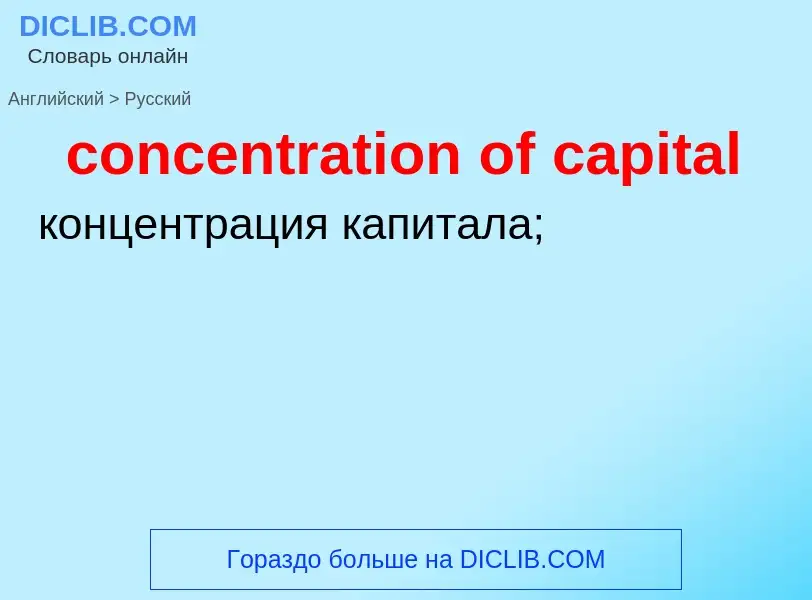Übersetzung und Analyse von Wörtern durch künstliche Intelligenz
Auf dieser Seite erhalten Sie eine detaillierte Analyse eines Wortes oder einer Phrase mithilfe der besten heute verfügbaren Technologie der künstlichen Intelligenz:
- wie das Wort verwendet wird
- Häufigkeit der Nutzung
- es wird häufiger in mündlicher oder schriftlicher Rede verwendet
- Wortübersetzungsoptionen
- Anwendungsbeispiele (mehrere Phrasen mit Übersetzung)
- Etymologie
concentration of capital - Übersetzung nach russisch
Definition
.
Wikipedia
In economics, market concentration is a function of the number of firms and their respective shares of the total production (alternatively, total capacity or total reserves) in a market. In any industry, a handful of firms that hold a significant portion of the market share and likely engage in the practice of consolidation will indicate higher market concentration within that industry. The market concentration ratio measures the concentration of the top firms in the market, this can be through various metrics such as sales, employment numbers, active users or other relevant indicators. In theory and in practice, market concentration is closely associated with market competitiveness, and therefore is important to various antitrust agencies when considering proposed mergers and other regulatory issues. Market concentration is important in determining firm market power in setting prices and quantities.
Market concentration is affected through various forces, including barriers to entry and existing competition. Market concentration ratios also allows users to more accurately determine the type of market structure they are observing, from a perfect competitive, to a monopolistic, monopoly or oligopolistic market structure.
Market concentration is related to industrial concentration, which concerns the distribution of production within an industry, as opposed to a market. In industrial organization, market concentration may be used as a measure of competition, theorized to be positively related to the rate of profit in the industry, for example in the work of Joe S. Bain.
An alternative economic interpretation is that market concentration is a criterion that can be used to rank order various distributions of firms' shares of the total production (alternatively, total capacity or total reserves) in a market.


